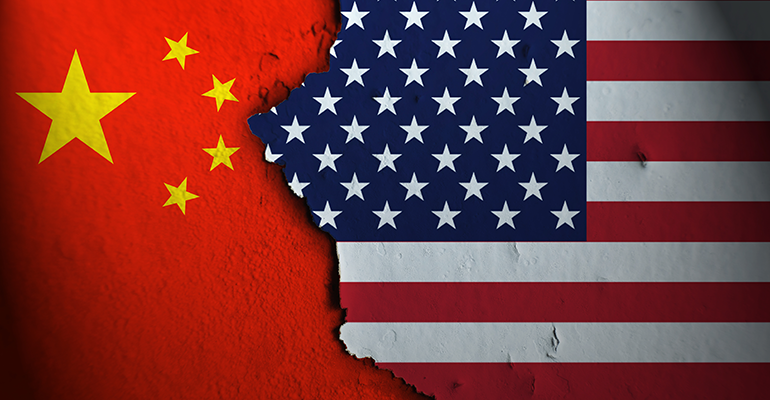News
US-China trade relationship for nutraceuticals remains unbalanced
12 Sep 2023
Geopolitical relations between China and the US are strained, meaning the US supplement industry’s relationship with its largest trading partner requires constant re-examination, according to the United Natural Products Alliance (UNPA).
Guest article co-written by Loren Israelsen, founder and president of UNPA, and Daniel Mabey, president for the Asia region at UNPA. The UNPA is an international trade association representing the interests of food supplement companies.
After more than three years of the “zero-COVID” policy and related disruptions, China is rebooting its economy and looking to restore the status quo in international trade. At the same time, many countries have started to diversify supply chains, with “friendshoring” entering the lexicon to de-risk economies from China. The changes are already substantial. During the first half of 2023, US imports from China were down by 24%, and Mexico became the US’s biggest trading partner.

Public attitudes toward China reflect a more concerned and negative view, compared to previous years. According to the Pew Research Center, in 2023 83% of Americans have an unfavorable view of China. Cross-cultural exchanges have plummeted to lows not seen in decades. American students studying in China dropped by 98% in the 2021–22 academic year. The US Department of State maintains a “Level 3: Reconsider Travel” status for China. Given the current geopolitical situation, it’s not surprising that as of the summer of 2023, only 6% of the pre-COVID flights are currently available between the US and China.
How all that comes to rest in the supplement industry remains to be seen, but the way US natural product brands and suppliers manage future relationships with their China counterparts will require a more thoughtful reconsideration than ever before.
While the need to diversify the US supply chain is a practical reality, the fact remains that China has been and remains the supply chain engine of the US’ domestic natural products industry. Clearly there are ways to constructively engage on personal, corporate and industry levels, all of which should be encouraged and supported.
Mind the gaps
The natural products industry is a more positive area than many sectors, as the US/China relationship changes. The pandemic-induced supply chain shock has largely subsided, and the China-to-US ingredient trade has stabilised. China’s e-commerce market is still growing strong.
According to China-based e-commerce accelerator WPIC, China’s supplement market is on track to reach $27 billion by 2028. Trade shows and exhibitions, like Hi & Fi Asia-China in Shanghai, are being held without the COVID-related disruptions.
The primary sales channel for imported dietary supplements remains the cross-border e-commerce (CBEC) system. Tmall Global is the largest CBEC platform and, from June 2022 to June 2023, saw imported supplement sales totaling $259 million. However, the market size of CBEC is limited because Chinese consumers can spend only $3,600 per year for all categories of imported products, not just supplements. Furthermore, there is still regulatory uncertainty within CBEC, as no product registration is required for supplements.
In order to import supplements into China and sell through retail and general e-commerce channels, Blue Hat Registration or filing is required. It remains a costly, time-consuming, and complicated process, and a simplified version has far from opened the floodgates for foreign brands.
 © AdobeStock/Julia
© AdobeStock/Julia
As of 2022, the total approvals of Blue Hat Registration for foreign companies was 785 versus 17,808 for Chinese companies. The newer and simplified Blue Hat Filing saw a total of 158 approvals for foreign companies versus 7,731 for Chinese companies. Due to the difficulty, many Chinese regulatory consultancies stopped offering Blue Hat services for foreign companies.
The natural products industry illustrates an area where the US-China trade relationship remains unbalanced. China exports billions of dollars of ingredients to the US, but strictly limits the number of finished products imported into the country. The United Natural Products Alliance (UNPA) has been working closely with the US Commerce Department’s International Trade Administration to address trade barriers while creating new opportunities for e-commerce sales.
The trade show SupplySide West will see the return of many Chinese companies and staff in 2023 that have missed US events for the past several years. Let us take that opportunity to welcome them back with hospitality and build on the personal relationships that are the foundation of all good business relationships.
This article first appeared in Nutrition Business Journal’s Global Market Overview Issue.
